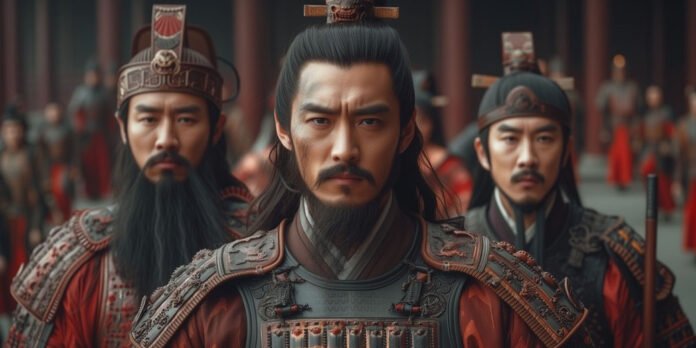Introduction
Caoliu, often referred to in traditional contexts, is a term that encompasses a rich tapestry of historical, cultural, and regional significance. This article delves into the origins of Caoliu, exploring its historical background, cultural relevance, and its evolution over time. Understanding Caoliu provides insights into not only its historical roots but also its impact on contemporary practices and traditions.
Historical Background
Caoliu, which can be translated to mean “mellow spirit” or “refined essence” in certain contexts, has a deep-rooted history that stretches back several centuries. The term has been historically associated with a variety of cultural practices, particularly in East Asia. Its origins are believed to be linked to ancient traditions and philosophies that emphasized harmony, balance, and spiritual refinement.
Ancient Traditions
The origins of Caoliu can be traced to ancient East Asian civilizations, where it was deeply embedded in practices related to wellness and spiritual harmony. In traditional Chinese culture, the concept of Caoliu was closely linked to the practice of Tai Chi and Qigong, disciplines that focus on cultivating inner energy and balance. These practices are believed to have influenced the development of Caoliu, as they emphasize the refinement of both mind and body.
Historical texts suggest that the practice of Caoliu was prevalent among scholars, philosophers, and spiritual practitioners who sought to achieve a state of inner peace and enlightenment. The integration of Caoliu into these practices highlights its significance in the pursuit of holistic well-being and intellectual growth.
Cultural Significance
Caoliu’s cultural significance extends beyond its historical roots, reflecting its role in shaping various aspects of traditional East Asian life. In historical contexts, Caoliu was associated with the refinement of personal character and moral integrity. It was often seen as a symbol of elevated virtue and intellectual prowess.
The concept of Caoliu also permeated artistic and literary expressions. Classical literature and poetry often drew upon the ideals of Caoliu to convey themes of tranquility, wisdom, and inner harmony. This cultural association further underscores the importance of Caoliu in shaping the intellectual and artistic landscape of historical East Asia.
The Evolution of Caoliu
As East Asian societies evolved, so did the interpretation and practice of Caoliu. Over time, the concept underwent various transformations, reflecting changes in social, cultural, and philosophical paradigms.
Adaptation to Modern Contexts
In contemporary times, Caoliu has adapted to modern contexts while retaining its historical essence. The principles of Caoliu continue to influence various fields, including wellness practices, personal development, and cultural activities. Modern interpretations of Caoliu often focus on its relevance in contemporary lifestyles, emphasizing the pursuit of inner balance and personal growth in a fast-paced world.
Influence on Wellness Practices
One of the most notable adaptations of Caoliu is its integration into modern wellness practices. The principles of Caoliu have been incorporated into various forms of meditation, yoga, and holistic health approaches. These practices draw upon the historical concept of Caoliu to promote physical and mental well-being, reflecting its continued relevance in contemporary health and wellness.
The rise of mindfulness and meditation practices in the West has also contributed to the global awareness of Caoliu. As more individuals seek to cultivate inner peace and balance, the historical principles of Caoliu have found resonance in diverse cultural contexts, bridging traditional practices with modern lifestyles.
Cultural Revitalization
In addition to its influence on wellness, Caoliu has experienced a resurgence in cultural revitalization efforts. Traditional festivals, ceremonies, and artistic expressions continue to celebrate the essence of Caoliu, preserving its historical legacy while adapting it to contemporary cultural practices.
Cultural organizations and enthusiasts often organize events and activities that highlight the significance of Caoliu, fostering a deeper appreciation for its historical and cultural contributions. This revitalization underscores the enduring impact of Caoliu on cultural heritage and its ongoing relevance in modern society.
Caoliu in Contemporary Society
In today’s globalized world, Caoliu’s origins and principles have transcended regional boundaries, influencing a diverse range of practices and perspectives. The concept’s adaptability and relevance have allowed it to find a place in various cultural and personal contexts.
Global Awareness and Appreciation
The global awareness of Caoliu has been facilitated by increased cross-cultural exchanges and the growing interest in Eastern philosophies. International interest in practices such as Tai Chi, Qigong, and mindfulness has contributed to the widespread appreciation of Caoliu’s historical and cultural significance.
Educational institutions, wellness centers, and cultural organizations around the world have embraced Caoliu’s principles, offering courses, workshops, and events that explore its origins and applications. This global engagement highlights the universal appeal of Caoliu and its potential to enrich diverse cultural experiences.
Personal Development and Well-being
On a personal level, individuals who engage with Caoliu’s principles often find that they enhance their overall well-being and personal development. The emphasis on inner balance, self-awareness, and spiritual refinement resonates with individuals seeking to cultivate a more meaningful and harmonious life.
Practitioners of Caoliu-inspired wellness activities often report benefits such as reduced stress, increased focus, and a greater sense of inner peace. These positive outcomes underscore the practical relevance of Caoliu in contemporary lifestyles and its potential to contribute to holistic well-being.
Conclusion
Caoliu, with its rich historical and cultural origins, continues to hold significance in both traditional and modern contexts. Its evolution from ancient East Asian practices to contemporary wellness and cultural revitalization reflects its enduring impact and adaptability.
As the global awareness of Caoliu grows, its principles offer valuable insights into achieving inner balance, personal growth, and cultural appreciation. Understanding the origins and evolution of Caoliu provides a deeper appreciation for its historical legacy and its continued relevance in shaping contemporary practices and perspectives.


